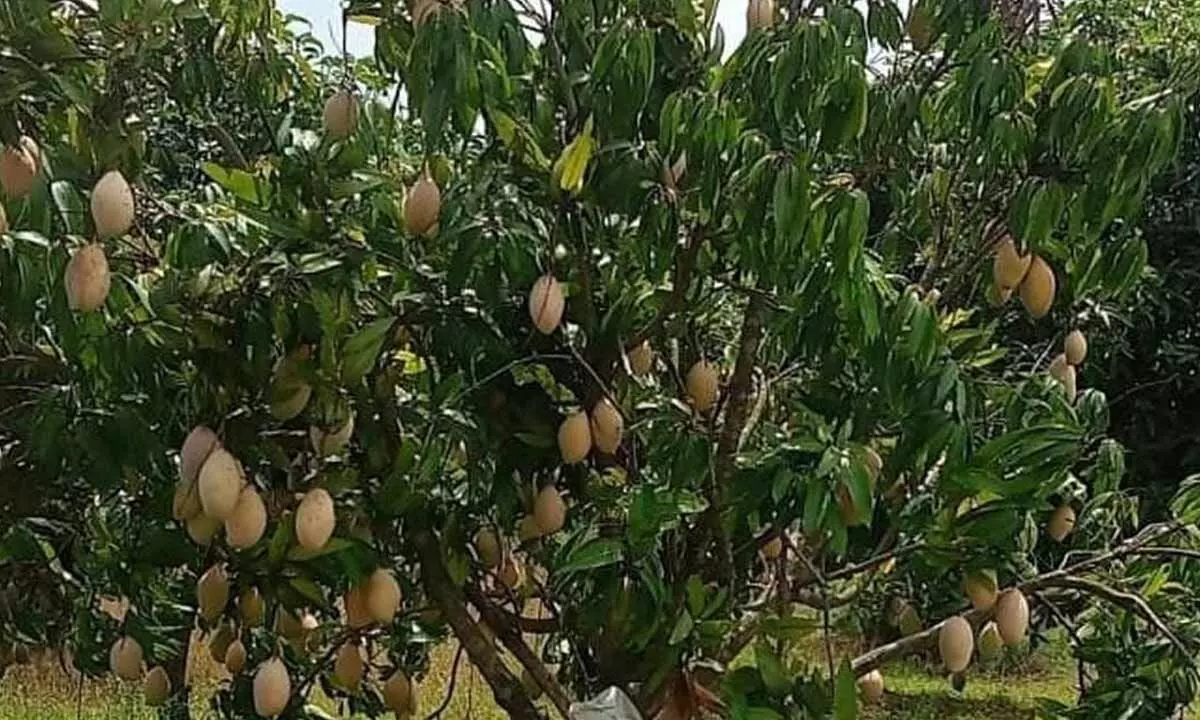Chittoor mango farmers struggle amid price rigging

The plight of mango farmers in the combined Chittoor district has remained unchanged for a long time.
Tirupati: The plight of mango farmers in the combined Chittoor district has remained unchanged for a long time. As one of the largest mango producing regions in the state, Chittoor boasts approximately 2.87 lakh acres of mango orchards where various varieties are cultivated. Among these, the Totapuri variety dominates, accounting for about 90 percent of the total production, while table varieties like Benisha and Malaguba make up the remaining 10 per cent.
Despite the high demand for Totapuri mangoes in the pulp industry, which purchases a significant portion of the produce each year, farmers face persistent price challenges. They struggle to receive a minimum support price, leading to widespread distress among the farming community.
The district is home to over 60 pulp industries, which, under normal circumstances, should ensure high returns for farmers. However, when the crop yield is abundant, the supply exceeds demand, causing prices to plummet. This leaves farmers unable to secure minimum prices.
Typically, growers expect to achieve 8-10 tonne yield per acre. This year, however, unfavourable climate conditions led to a significant drop in yield, with farmers achieving only about 10-20 percent of the normal harvest.
Despite this reduced supply, which should have led to higher prices, farmers faced disappointment. Initially, prices started at Rs 30,000 per tonne, but soon dropped to Rs 28,000 as pulp industry owners allegedly formed a syndicate to reduce prices gradually. By Sunday, prices plummeted to Rs 23,000 per tonne, according to one farmer. In response, Chandragiri MLA Pulivarthi Nani intervened and brought the issue to the government’s attention.
Consequently, both Chittoor and Tirupati collectors held discussions with district officials concerned and issued instructions to pulp industry owners and other buyers, setting the support price at Rs 30,000 per tonne. They emphasised that prices should not fall below this level and warned of severe consequences for non-compliance. However, farmers remain apprehensive about whether buyers and pulp industries will adhere to the government’s instructions. A farmer Sai Kiran Reddy told The Hans India that he had hoped for higher prices to offset the losses incurred from the reduced harvest.
It remains to be seen if farmers will indeed receive the government-mandated support price of Rs 30,000 per tonne, as pulp industries and traders often cite various reasons to lower the price.








